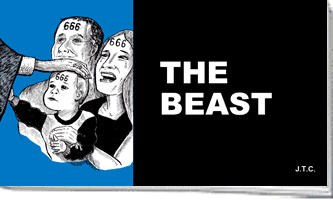Humanists, Atheists Demanding More Privileges
Today`s drive for "tolerance" and multiculturalism has created some strange scenarios. Major Ray Bradley has applied to be recognized as the first humanist "distinctive faith group leader" in the U.S. Army. Currently, the service only recognizes "atheist" as a category that Bradley can have inscribed on his dog tags.
He objects to this designation as too negative: "Humanism is a philosophy that guides a person. It`s more than just a stamp of what you`re not." When Bradley enlisted in 1986, the only designation available was: "No Religious preference." His present effort is supported by the Military Association of Atheists and Freethinkers (MAAF). Besides "humanist," they want to see "spiritual but not religious" added to the official designations available in the Army`s official records.
The MAAF is also responsible for getting Bibles removed from the Air Force list of items provided in approved lodging facilities, and the word, "God" from the logo of its Rapid Capabilities office. One threatening letter from the MAAF was all it took.
In Dallas, The American Humanist Association (AHA) took a page out of the homosexual playbook and accused a theater of violating the federal Civil Rights Act by refusing to show an advertisement from a local atheist group.
These efforts are just part of a growing trend by militant anti-religion activists to speak up for more recognition. Over the last few years, billboards, bus placards and even public demonstrations promoting "disbelief" have made news.
According to the most recent American Religious Identification Survey, approximately 30 million people in the United States identify themselves as atheist, humanist, freethinker or agnostic.
But humanism is more central to mankind`s basic rebellion against his Creator. As Bradley points out, humanism is a philosophy that guides people, not just a declaration of no confidence in the existence of a Creator.
In fact, Satan`s lie to Eve that she could "be as gods," was the start of Bradley`s philosophy of humanism which elevates mankind to the supreme position in the universe.
The full blossoming of humanism began about the same time as the Reformation. Under the thumb of the popes during the dark ages, ignorance and superstition reigned in the culture. Without available books, few could read.
Gutenberg`s printing press (and the wonderful chemists who invented cheap paper) broke that barrier. Within 50 years, 10 million books were available; especially the Bible.
But when you read the Bible, you have to make a choice: submit to your Creator —or reject Him. Two streams of modern history were born at that point: the Reformation and the Secular streams.
Biblical doctrine guided the Reformation, which transformed western culture into the most prosperous, free society yet. Birth pangs in Northern Europe and Great Britain birthed the United States of America, dedicated to living in accord with a biblical path.
But the humanists in Europe, who fostered the bloody French Revolution, were busy planting seeds of their "philosophy" in America. Harvard, Yale, and Columbia were founded as pastor training schools. Now they are fountainheads of godlessness which flows all the way down to our kindergartens.
Humanism seeks to establish heaven on earth by evolution`s natural selection, technology`s grand discoveries, psychology`s personality enhancements, and search for cosmic enlightenment. Biblical prophecy shows that their dream will never happen; that only Jesus` return can redeem the creation from the pollution of human arrogance.
The new Chick tract, Why Should I, speaks to this human pride by showing the eternal risk. Other tracts such as The Beast and Somebody Angry? are also designed to shock the dis-believers with biblical truth.
- See more articles on related topics:
- Ecumenism
- Other Subjects
Other Articles from May/June 2012:
More on Other Subjects:
Products of Interest:

Why Should I?
I didn't even know I had a soul. Is it really that important?
Beast, The
This Bible prophecy tract hits hard. Accept Christ or face a time of trouble like the world has never seen.
Who is He?
The world is confused about who Jesus is. It's a mistake they can't afford to make.



